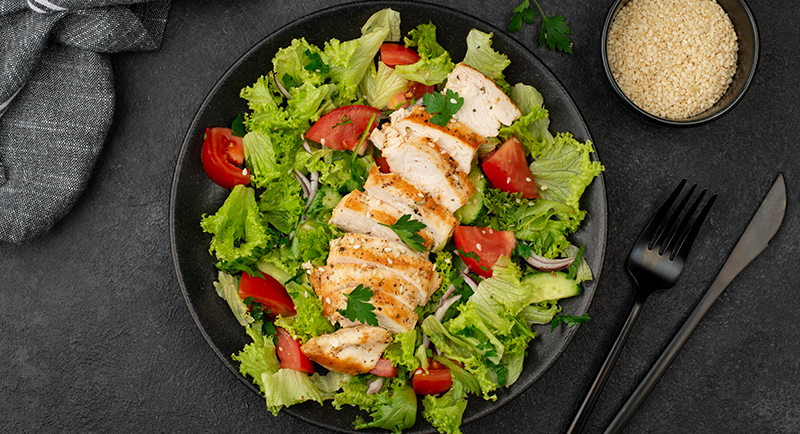Four easy ways to eat healthy without dieting
Improving your health by improving your diet does not include having to follow strict dieting rules. Hard and fast rules regarding eating behavior rarely lead to permanent, sustainable changes. Besides, healthy eating can be daunting enough with loads of conflicting advice from unqualified so-called, “nutrition experts” recommending foods you dislike or are unsatisfying.
So, what is the solution for reaching the pinnacle of eating healthy without feeling like dieting?
The good news is with a few simple steps, you can achieve healthy eating that can fit into your lifestyle without making drastic and restrictive changes.
Here are four ways you can learn how easy it is to make a diet overhaul without “dieting:”
- Color your meals
Start by creating a colorful plate palette. Think red, orange, purple, blue, green, and yellow, colors that pop and catch your eye. Now, next time you go grocery shopping, head to the produce department. This is where colorful foods are found. Most Americans are not eating enough fruits and vegetables. Ideally, you should aim for at least 5 servings of produce that add bright colors along with nutrient-dense foods full of various vitamins, minerals, antioxidants, and fiber. However, the produce department is not the only source of produce. Be sure to check out the frozen and canned sections of the grocery store for these same colorful produce.
2. Become a mindful eater
Mindful eating means learning to listen to the physical sensations of your body in regards to eating cues. For instance, at this moment, take note of how hungry you are. Do you feel ravenously hungry, mildly hungry, neither hungry or full, full, or stuffed? Paying attention to your body’s hunger/fullness cues will let you know when to eat if you’re feeling hungry or when to stop once you feel full.
3. Venture into the inner aisles at the grocery store
How many times have you been told to, “shop the perimeter of your grocery store?” This advice is well-intentioned but fails to recognize the enormous number of healthy packaged foods among the inner aisles. These nutritious foods include whole-grain breads and pastas, brown rice, canned salmon and tuna, high-fiber cereals, oats, dried and canned beans, and nuts and seeds. If you actually follow the advice of only shopping the perimeter, you’ll miss out on foods containing valuable nutrients supporting your health.
4. Plan meals to include carbohydrates, protein, and healthy fat
Planning meals is similar to constructing a building. Begin with the foundation first or in this case, always include the trio of macronutrients of carbohydrates, protein, and fat as the base for your plate. Just like the USDA’s MyPlate graphic demonstrates, half of your plate should be filled with nonstarchy vegetables or fruit, such as a green leafy salad, carrots, or cauliflower, a fourth of the plate with a high-quality protein like lean beef, poultry, or fish, and the other fourth of the plate with a whole grain like brown rice or a starchy vegetable like a sweet potato, to provide foods that are made up of the components of the three macronutrients.
Here are two examples of meals using the foundation of macronutrients:
Breakfast: Oatmeal with berries, walnuts, and milk with a side of scrambled eggs
Lunch: Spinach salad topped with sliced chicken breast and strawberries, and quinoa on the side.
Dr. David Samadi is the Director of Men’s Health and Urologic Oncology at St. Francis Hospital in Long Island. He’s a renowned and highly successful board certified Urologic Oncologist Expert and Robotic Surgeon in New York City, regarded as one of the leading prostate surgeons in the U.S., with a vast expertise in prostate cancer treatment and Robotic-Assisted Laparoscopic Prostatectomy. Dr. Samadi is a medical contributor to NewsMax TV and is also the author of The Ultimate MANual, Dr. Samadi’s Guide to Men’s Health and Wellness, available online both on Amazon and Barnes & Noble. Visit Dr. Samadi’s websites at robotic oncology and prostate cancer 911.

